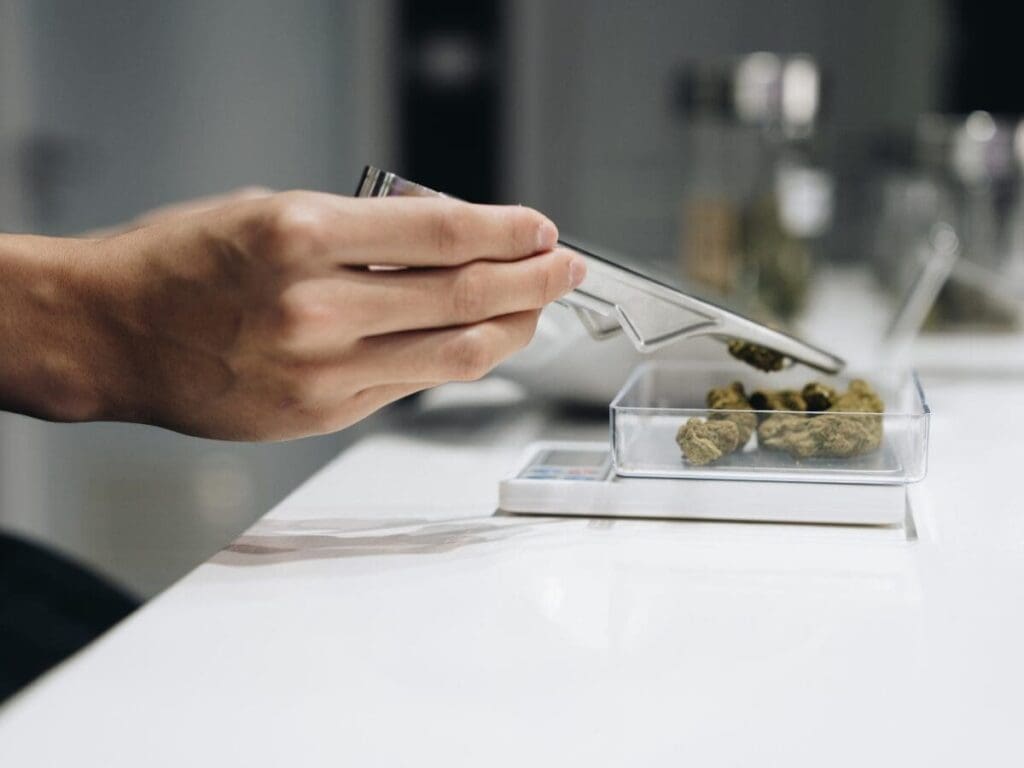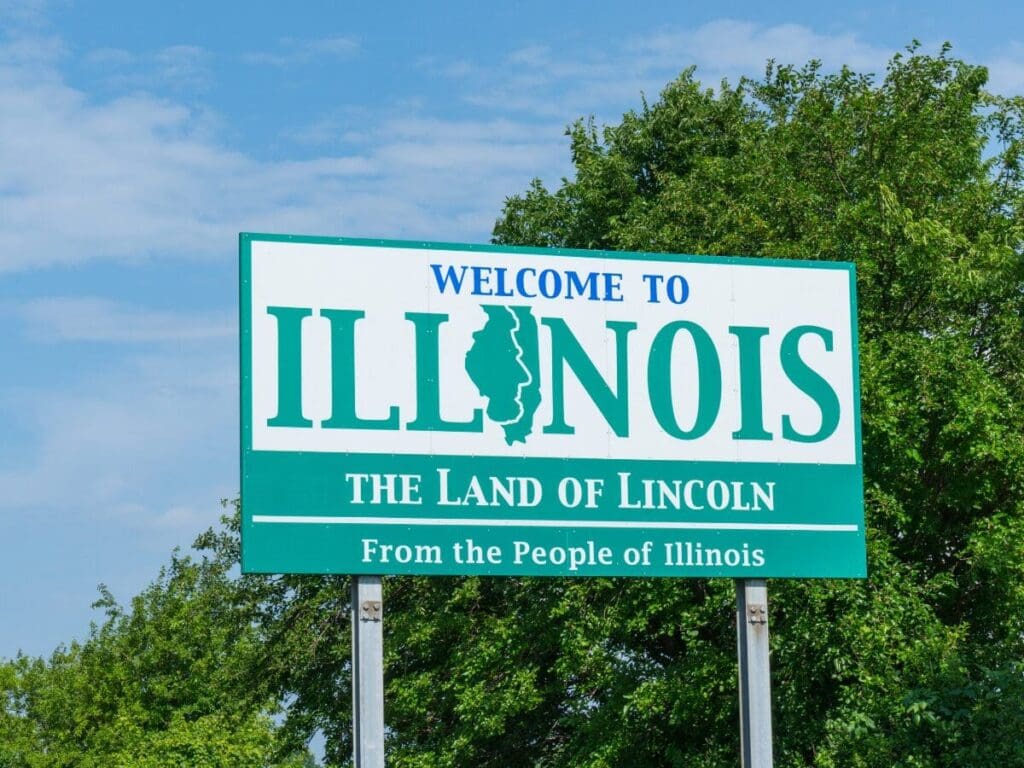Key Takeaways:
- Legal Status: Understand the current legal standing of Delta 8 THC in Illinois and how federal and state laws influence it.
- Health and Safety: Learn about the health effects and safety concerns associated with consuming Delta 8 products.
- Economic Impact: Discover how Delta 8 contributes to Illinois’ economy and what the future holds for this growing industry.
Have you ever wondered about the legal status of Delta 8 THC in Illinois? With the rise of alternative cannabinoids, many people are asking if Delta 8 is a viable option. The evolving cannabis laws across the country add layers of complexity to this question, especially when comparing hemp-derived Delta 8 to its cousin, Delta 9.
At Happy Hemp, we pride ourselves on leading the industry with premium Delta 8 THC products. With rigorous lab testing and commitment to quality, we ensure each product delivers safe, enjoyable results.
In this article, we’ll clarify Delta 8’s legal standing in Illinois and what it means for you.
Is Delta 8 Legal In Illinois?
Yes, Delta 8 THC is legal in Illinois. Illinois follows the federal guidelines set by the 2018 Farm Bill, which legalized hemp-derived cannabinoids, including Delta 8, as long as the product contains less than 0.3% Delta 9 THC. This distinction is important because it allows Delta 8 products to be legally produced and sold within the state, provided they meet the required THC limit.
However, while Delta 8 is legal, the regulatory framework in Illinois is still evolving. The state has not placed any specific restrictions on Delta 8 THC beyond what the federal government has established, meaning that it is widely available for purchase. Retailers in Illinois can sell Delta 8 products both online and in physical stores, as long as they adhere to the hemp product regulations.
That said, there are ongoing discussions about whether Delta 8 should be more closely regulated or even restricted, similar to Delta 9 THC. Some states have already moved to ban or regulate Delta 8 more strictly, citing concerns about safety and the lack of regulation around its production.
Looking for high-quality Delta 8 gummies? At Happy Hemp, we offer a wide selection of lab-tested, hemp-derived Delta 8 gummies designed for safety and satisfaction. Whether you’re seeking relaxation or a milder high, our gummies deliver a smooth experience. Shop now for premium Delta 8 products and enjoy fast shipping directly to your door. Ready to explore the best in Delta 8? Browse our collection today and experience the difference!
Illinois State Laws On Delta 8 THC
Delta 8 THC has gained significant attention for its milder psychoactive effects compared to Delta 9 THC, leading to its increased popularity in states where cannabis laws are still evolving. In Illinois, Delta 8 THC remains legal under state hemp laws, as long as it complies with certain federal guidelines. However, the state’s approach to regulating hemp products, including Delta 8, is still developing. Below is an in-depth look at the legal landscape surrounding Delta 8 THC in Illinois, its regulatory framework, and what consumers need to be aware of as laws continue to evolve.
The Legal Status Of Delta 8 THC In Illinois
Delta 8 THC is legal in Illinois under the state’s hemp laws, which follow the federal Farm Bill of 2018. This bill allows hemp-derived products, including Delta 8, to be legally sold as long as they contain less than 0.3% Delta 9 THC. Since Delta 8 is derived from hemp rather than marijuana, it fits within the legal framework for hemp products in Illinois. However, it’s important for consumers and sellers alike to understand that Delta 8 is not directly regulated under cannabis laws, meaning it exists in a gray area of legality.
Regulation And Oversight By The Illinois Department Of Agriculture
The Illinois Department of Agriculture oversees the production and sale of hemp-derived products, including Delta 8 THC. Licensed hemp growers and processors are required to comply with rigorous testing and labeling regulations to ensure their products meet the legal standards for hemp. Although Delta 8 itself is not specifically regulated, it is treated as part of the broader hemp market. This means all Delta 8 products must adhere to the same quality control measures, including ensuring Delta 9 THC levels remain within the legal threshold of 0.3%.
Delta 8’s Place In Illinois’ Cannabis-Friendly Environment
Illinois is known for its progressive stance on cannabis, having legalized recreational cannabis use in 2020. However, Delta 8 THC occupies a unique position in the state’s market because it is derived from hemp rather than marijuana. This distinction allows for a more lenient approach to its sale and distribution. Despite the state’s cannabis-friendly laws, Delta 8 remains somewhat separated from the recreational cannabis market due to its legal classification, allowing it to be sold in places where marijuana might still face restrictions.
The Gray Area Surrounding Delta 8 THC
Despite its current legal status, Delta 8 THC exists in a gray area due to its method of production and psychoactive effects. Since it is not directly derived from marijuana, it has been able to bypass stricter cannabis regulations. However, as Delta 8 THC grows in popularity, Illinois may soon introduce more specific laws and regulations governing its sale, labeling, and production. Consumers should stay informed about any potential legal changes, as the state may clarify its stance on Delta 8 in the near future.

The Federal Landscape And Its Influence On Delta 8 THC In Illinois
Delta 8 THC occupies a unique space within the U.S. legal system, where federal and state laws intersect. While the federal government has legalized hemp through the 2018 Farm Bill, the broader legal status of Delta 8 remains in flux. Federal guidelines influence how states like Illinois regulate Delta 8, but the lack of clear federal rules has created an uncertain legal environment. In this section, we’ll explore the federal laws impacting Delta 8 THC and how they shape its legality in Illinois.
The 2018 Farm Bill And Hemp Legalization
The 2018 Farm Bill was a landmark piece of legislation that legalized hemp and its derivatives, including cannabinoids like Delta 8 THC, as long as they contain less than 0.3% Delta 9 THC. This bill removed hemp from the list of controlled substances, allowing hemp-derived products to be sold legally across the U.S. In Illinois, this federal law paved the way for the legal sale of Delta 8, provided it adheres to the same THC limits. However, the Farm Bill’s focus on Delta 9 THC has led to a complex situation for other cannabinoids, including Delta 8.
Concerns From Federal Agencies Regarding Delta 8 THC
Despite the legality of hemp under the Farm Bill, federal agencies like the Drug Enforcement Administration (DEA) have raised concerns about Delta 8 THC. Specifically, the DEA has suggested that any synthetic cannabinoids, or those created through chemical processes, may be considered illegal under the Controlled Substances Act. Since most Delta 8 THC is produced by converting CBD into Delta 8 through a chemical process, there is a possibility that Delta 8 could be classified as a synthetic cannabinoid, making it illegal under federal law. This potential classification has created uncertainty for producers and consumers alike.
The DEA’s Stance On Synthetic Cannabinoids And Its Implications
The DEA has made statements indicating that cannabinoids produced synthetically could be classified as Schedule I substances under the Controlled Substances Act. Since Delta 8 THC is typically derived through the chemical conversion of CBD, it could be considered a synthetic compound. This raises concerns that the federal government may eventually classify Delta 8 as a controlled substance, even though it is currently legal under the 2018 Farm Bill. For now, the DEA has not taken concrete action against Delta 8, but businesses and consumers should be aware of the potential for federal reclassification.
Lack Of Federal Enforcement And Its Impact On State Laws
Despite the DEA’s concerns, there has been little federal enforcement targeting Delta 8 THC at this time. This has allowed states like Illinois to regulate Delta 8 on their own, resulting in a patchwork of laws across the country. In Illinois, Delta 8 remains legal under state hemp laws as long as it meets the THC requirements outlined in the Farm Bill. However, without clear federal guidance, states are left to navigate the uncertain legal territory surrounding Delta 8, leaving room for potential changes as federal policies evolve.
Where To Purchase Delta 8 THC In Illinois
Delta 8 THC is readily accessible to consumers in Illinois, available in various forms such as edibles, vapes, and tinctures. Whether you prefer shopping locally or online, there are plenty of retailers to choose from. However, it is essential to buy from trusted sources to ensure product quality and legality. Below is a breakdown of the various places you can purchase Delta 8 THC in Illinois.
- CBD Shops: Local CBD stores across Illinois often carry Delta 8 THC products. These shops typically offer a variety of Delta 8 options, including gummies, tinctures, and vapes. Staff at these locations may also be able to provide insights and recommendations based on your needs.
- Smoke Shops: Smoke shops, which are widespread throughout Illinois, also stock Delta 8 THC products. They frequently carry a selection of Delta 8 vapes and edibles, catering to customers who may already be familiar with cannabis products. As with CBD shops, it’s important to verify that the smoke shop is selling products that have undergone third-party lab testing.
- Wellness Stores: Some wellness and natural health stores have begun carrying Delta 8 THC, particularly as consumers seek alternative health products. These stores may focus on Delta 8 tinctures or capsules, which appeal to those looking for potential therapeutic benefits. Always check if the store provides lab-tested products to ensure safety and compliance.
- Online Retailers: Delta 8 THC is also available from a variety of online retailers that ship to Illinois. Purchasing online offers convenience, and many retailers provide a wide selection of products, often at competitive prices. When buying online, ensure the retailer offers third-party lab testing results and has a reputable track record of customer satisfaction.
- Recreational Cannabis Dispensaries: Although recreational cannabis dispensaries in Illinois primarily focus on Delta 9 THC products, some may also carry Delta 8 options. It’s worth checking with local dispensaries to see if they stock Delta 8 products, as these locations are typically regulated and carry higher-quality items.
When purchasing Delta 8, always prioritize retailers who provide lab results to guarantee product safety, potency, and compliance with legal THC limits.
The Economic Influence Of Delta 8 THC In Illinois
The rise of Delta 8 THC has introduced a significant economic shift within Illinois, particularly in sectors related to cannabis and hemp. With increasing consumer interest and demand for Delta 8 products, local businesses, including CBD shops, smoke shops, and dispensaries, are experiencing substantial growth. Moreover, the economic ripple effect extends to the state’s agricultural sector, providing new opportunities for hemp farmers. While the legal status of Delta 8 remains a topic of discussion, its impact on Illinois’ economy is clear. Below is an exploration of how Delta 8 is influencing various facets of the state’s economy.
Boost To Local Businesses And Retailers
The growing demand for Delta 8 THC has provided a strong boost to local retailers across Illinois. CBD shops, smoke shops, and wellness stores have seen an increase in sales as consumers seek out Delta 8 products for their perceived benefits and legal status. This surge has not only created new revenue streams for small and medium-sized businesses but has also encouraged the expansion of product lines to meet consumer preferences for edibles, tinctures, and vape products. The result is an expanding market that supports local economies and contributes to job creation in the retail sector.
Expansion Of The Hemp Farming And Production Sector
Hemp farming in Illinois has also seen a significant increase due to the rising demand for Delta 8 THC, which is derived from hemp plants. Farmers are benefiting from this trend, as the need for cannabinoids like Delta 8 creates new opportunities for cultivation and processing. The economic benefits extend beyond just growing hemp; processing plants and labs specializing in extracting cannabinoids have seen an uptick in business. This trend has encouraged agricultural diversification in Illinois, with hemp now being a valuable crop contributing to the state’s economy.
Illinois As A Leader In Progressive Cannabis Laws
Delta 8’s rise further reinforces Illinois’ position as a leader in cannabis-related markets. Since the state legalized recreational cannabis, Illinois has been recognized for its progressive stance on hemp and cannabis regulations. The legal sale of Delta 8, although in a gray area, provides another avenue for economic growth. Dispensaries and businesses that initially focused on Delta 9 THC are now expanding their offerings to include Delta 8 products, drawing a broader customer base. This positions Illinois at the forefront of cannabis innovation, with Delta 8 THC playing a growing role in the state’s thriving cannabis economy.
The Current Economic Outlook For Delta 8
For now, the economic impact of Delta 8 in Illinois remains overwhelmingly positive. Both consumers and businesses are capitalizing on the opportunities this cannabinoid presents, from product sales to agricultural expansion. As long as the legal landscape remains favorable, Delta 8 will continue to support economic growth across multiple sectors. However, businesses involved in Delta 8 should stay informed about potential regulatory changes, as the market could shift quickly depending on future legislation.

Final Thoughts
Delta 8 THC is currently legal in Illinois, offering consumers a less potent alternative to Delta 9 THC while adhering to federal guidelines set by the 2018 Farm Bill. As long as the Delta 9 THC content remains below 0.3%, hemp-derived Delta 8 can be sold and consumed in the state. Despite its popularity and the positive impact on local businesses, the future of Delta 8 remains uncertain. Ongoing discussions at both state and federal levels could result in regulatory changes that affect its availability and legal status.
For now, Delta 8 continues to thrive in Illinois, providing economic benefits and offering consumers a legal alternative to stronger THC products. However, users should stay informed about potential changes in the law and ensure they purchase from reputable sources to avoid safety concerns. As the market for cannabinoids evolves, Illinois’ policies will likely adapt, potentially influencing the state’s broader cannabis industry.
Read also:
- The Ultimate Guide to CBD Oil for Inflammation: Relief Without the High
- How CBD Oil Can Ease Your Knee Pain
- The Benefits of CBD Oil for Backache Relief
Frequently Asked Questions About The Legality Of Delta 8 In Illinois
What is Delta 8 THC?
Delta 8 THC is a cannabinoid found in hemp, similar to Delta 9 THC but less potent. It provides a mild, psychoactive effect without the intensity often associated with Delta 9.
Is Delta 8 considered synthetic?
Delta 8 itself is not synthetic, but it’s often derived from hemp-derived CBD through a conversion process. Some legal concerns arise because of this process.
How does Delta 8 affect the body?
Delta 8 interacts with the body’s endocannabinoid system, producing effects like relaxation, mild euphoria, and increased focus, but with less anxiety than Delta 9 THC.
Is there an age restriction for purchasing Delta 8 in Illinois?
Yes, consumers must be 21 years or older to purchase Delta 8 products, similar to other cannabis and hemp products.
Does Delta 8 show up on a drug test?
Yes, Delta 8 can show up on a drug test, as most tests cannot differentiate between Delta 8 and Delta 9 THC.
Can I travel with Delta 8 in Illinois?
Yes, you can travel with Delta 8 products within Illinois, but you should check local laws if traveling across state lines, as Delta 8 may be illegal elsewhere.
How does Delta 8 compare to CBD?
While both are derived from hemp, Delta 8 THC is psychoactive, whereas CBD is non-psychoactive and primarily used for its relaxing and anti-inflammatory effects.
Are Delta 8 gummies safe to consume?
Delta 8 gummies are generally safe when purchased from reputable sources like Happy Hemp, where they are tested for purity and safety.
Can Delta 8 help with pain relief?
Some users report that Delta 8 offers relief from pain and inflammation, similar to CBD, but its effects are more mild and less sedative than Delta 9 THC.
What should I consider when buying Delta 8 products in Illinois?
Look for third-party lab tests, clear labeling, and transparent sourcing practices to ensure the product meets Illinois regulations and quality standards.
Sources:
- Illinois Lawmakers, Cannabis Industry Call for Ban on “Delta-8” and Other Psychoactive Hemp Products. (2018). WTTW News. https://news.wttw.com/2024/04/13/illinois-lawmakers-cannabis-industry-call-ban-delta-8-and-other-psychoactive-hemp
- Member Blog: Where Is Delta-8 THC Legal and Where Is It Banned? CBD Oracle’s Map Has the Answers |. (2023, November 9). The National Cannabis Industry Association. https://thecannabisindustry.org/member-blog-where-is-delta-8-thc-legal-and-where-is-it-banned-cbd-oracles-map-has-the-answers/
- HB4161 103RD GENERAL ASSEMBLY. (2023). Ilga.gov. https://www.ilga.gov/legislation/103/HB/10300HB4161.html







